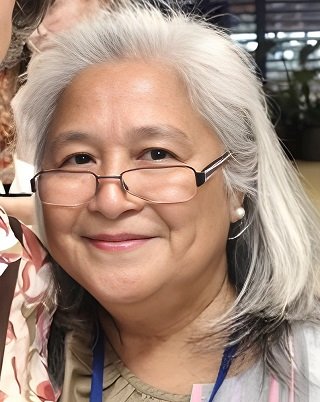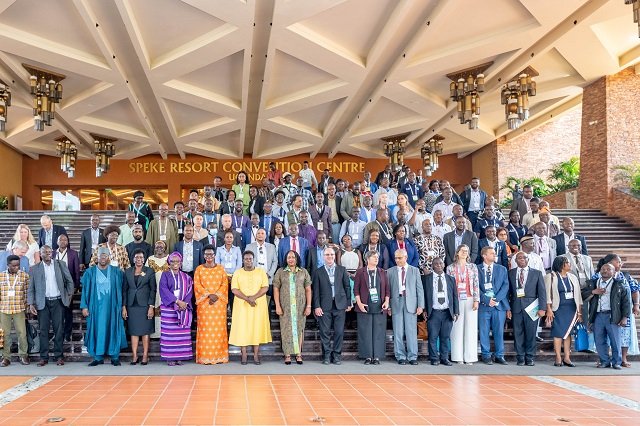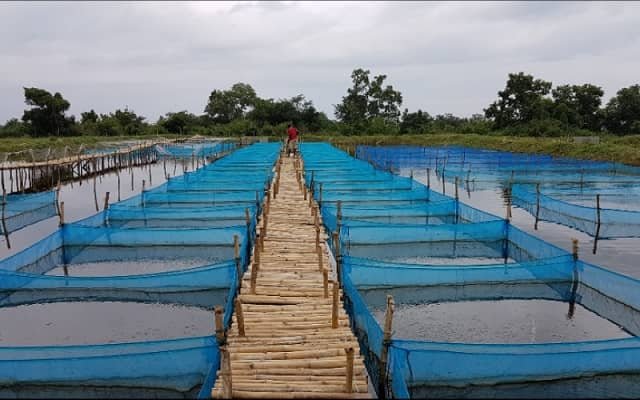
World Aquaculture Safari 2025, Uganda is proud to announce that Dr Melba B. Reantaso, Ph.D. (former FAO Team Leader, Fisheries and Aquaculture Division (NFI) will be serving as a plenary speaker at the conference. With a distinguished background in aquatic organism health management and aquaculture biosecurity, including co-ordination of various workforce development and research projects on aquatic animal health and biosecurity in Africa and globally, Dr Reantaso is a renowned and revered figure in Africa’s aquaculture domain. Her keynote address will focus on insights and perspectives on what Africa needs to do to improve its aquatic biosecurity management through a risk-based, collaborative and progressive approaches to safeguard human health, the environment and national economies in the face of a rapidly changing world.
Dr Reantaso has close to 30 years combined experience in research, training, diagnostics, extension and international aid and development work on aquaculture, management of health of aquatic organisms and biosecurity. She retired early as Senior Aquaculturist in 2002 after 18 years of government service at the Fish Health Section of the Philippine Bureau of Fisheries and Aquatic Resources. Dr Reantaso worked for the Network of Aquaculture Centre in Asia and the Pacific (NACA, Bangkok, Thailand) from 1999-2002 as Regional Aquatic Animal Health (AAH) Specialist and Coordinator of an FAO project with 21 countries participating that resulted to the establishment of aquatic animal health programme of NACA; and led the investigation of koi herpesvirus, at that time, in Indonesia. She migrated to the USA and worked (2002-2004) at the Cooperative Oxford Laboratory, a fish health laboratory shared by MD/DNR and NOAA, responsible for the histopathological analyses from an active surveillance for oyster diseases. She joined FAO in 2004, led international disease investigation task forces on epizootic ulcerative syndrome in Botswana, Zambia, the Democratic Republic of Congo, and Malawi; white spot syndrome virus of shrimp in Mozambique and Madagascar, and acute hepatopancreatic necrosis disease in Viet Nam. Her work in Africa included national and regional aquatic organism health strategy development, training courses on risk analysis, emergency preparedness and active surveillance for EUS and tilapia lake virus. She has M.Sc., Ph.D. and post-doc credentials all on diseases of aquatic animals: post-doc fellow (Nippon Veterinary and Life Science University, adviser: Prof Kishio Hatai) of the Japan Society for the Promotion of Science; Ph.D. (University of Tokyo; adviser: Prof Kazuo Ogawa) as a Monbusho scholar and an M.Sc in Biology (De La Salle University, adviser: Dr James Richard Arthur) as a recipient of a project scholarship grant from International Development Research Centre of Canada. She earned her B.Sc. in Zoology from the University of the Philippines in Los Banos. She serves as referee to various peer-reviewed journals and co-editor of Diseases in Asian Aquaculture series (DAA V, VI and VII). She was founding member and served as Chairperson (2002-2005) and Secretary/Treasurer (1999-2002) of the Fish Health Section, Asian Fisheries Society and currently Senior Adviser. She travels extensively (at least 75 countries to-date) in pursuit of scholarly and career goals in aquaculture development and biosecurity. She maintains a global network of experts and served as Chief Editor of the FAO Aquaculture Newsletter from 2006 to 2016. She spearheaded the development of a new initiative called Progressive Management Pathway for Improving Aquaculture Biosecurity, a paradigm shift in managing health of aquatic species through a risk-based, collaborative and progressive approach. As Team Leader of Food Safety, Nutrition and Health team at the Fisheries and Aquaculture Division of FAO since 2021; aside from supervisory tasks, she led FAO work on biosecurity, disease risk assessment, surveillance, national/regional aquatic organisms health strategies, AMR in aquaculture; developed and implemented capacity development activities, projects, training courses, seminars/conferences; conducted investigations of disease outbreaks and mass mortality events in aquatic populations; and represents FAO in relevant bodies, committees, advisory board, etc.
The World Aquaculture Safari 2025 Conference Plenary session will take place during the Opening Ceremony on June 25, 2025, at 9:00am (Uganda time) and will focus on the event theme “Aquaculture on the Rise,” About 2000 participants from around the world are expected at the Conference.
In addition to regular programme topics of interest to African and global aquaculture, the event will continue to feature unparalleled educational and networking opportunities, facilitating the exchange of knowledge and information. Exciting field trips and touristic adventures are being planned around Lake Victoria and Uganda. Registration and submission of abstract is open.
All conference details will be updated on the event page on https://www.was.org/meeting/code/afraq25. For all enquiries on WAS25 Uganda contact: worldaqua@was.org or africanchapter@was.org.
Editor at the digital magazine AquaHoy. He holds a degree in Aquaculture Biology from the National University of Santa (UNS) and a Master’s degree in Science and Innovation Management from the Polytechnic University of Valencia, with postgraduate diplomas in Business Innovation and Innovation Management. He possesses extensive experience in the aquaculture and fisheries sector, having led the Fisheries Innovation Unit of the National Program for Innovation in Fisheries and Aquaculture (PNIPA). He has served as a senior consultant in technology watch, an innovation project formulator and advisor, and a lecturer at UNS. He is a member of the Peruvian College of Biologists and was recognized by the World Aquaculture Society (WAS) in 2016 for his contribution to aquaculture.




